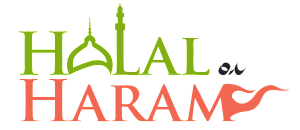Health and Prophetic Counsel Regarding Beef and Milk Consumption
Hadīth About Bovine Meat
There is no Hadīth available to us that I am aware of which confirms that the Prophet in fact ate beef. I have asked this of a few of my Teachers, who are experts on Hadīth collections, who have also confirmed the same.
However, we do have a number of authenticated statements of the Prophet, which does confirm that beef, i.e., cow’s meat (also called bovine meat), contains illness and its milk, and in fact its fat and milk contains cure and healing.
For example, Imam Suyuti in his al-Jāmi’ as-Saghīr narrates that the Messenger of Allah, upon whom be peace and blessings of Allah, said, “The milk of the bovine (cow) contains healing, its fat is a medicine, and its meat a cause for sickness.”
Tabarani also narrates the above-mentioned Hadīth as authentic, and so did Bayhaqi in his Sunan and Hakim in his Mustadrak.
Applying the Hadīth
So, what does afore-mentioned mean to us?
Firstly, bovine meat, i.e., beef, is well authenticated in the Qur’an to be permitted:
He only prohibits for you the eating of animals that are already dead (carrion), blood, the meat of pigs, and animals dedicated to other than Allah. But if one is forced, one neither desiring it nor transgressing limits, he incurs no sin for Allah is All-forgiving, Most Merciful. [2:173]
Given there are many other proofs of its permissibility, then the Prophetic Saying about beef should be taken as a serious warning and a matter for us to investigate further and learn more about. Today we know a lot about the meat-producing industry, red meat and related major health risks.
There are numerous books and research papers which are publicly availably that provides evidence-based proofs why red meat in fact is a health risk at large consumption levels which are common today. This is well corroborated with numerous Prophetic Examples, exhorting us to eat moderately, and in fact to eat quite a small amount!
Healthy Recommendations
1. Reduce beef/red meat consumption.
Amongst a plethora of studies, I would like to quote Marji McCullough, PhD, a nutritional epidemiologist with the American Cancer Society; “The association between consumption of red and processed meats and cancer, particularly colorectal cancer, is very consistent.”
Further, after a systemic review of scientific studies, an expert panel of the World Cancer Research Fund and the American Institute for Cancer Research concluded in 2007 that “… red or processed meats are convincing or probable sources of some cancers,” further providing evidence for a link between red meat, processed meat, and colorectal cancer, and limited but highly probabilistic for links to lung, esophageal, stomach, pancreatic, and endometrial cancers.
2. Try to consume organic meat for non-regular consumption.
Organic and naturally nurtured cattle contain high levels of health-conducive fats within the meats, which are often either stripped or not present in the modern-day mass-produced “lean beef”. There are plenty of studies regarding this. For example, British Journal of Nutrition (volume 105, issue 01, January 2011), provided detailed evidence that red meat from animals fed on grass for as little as six weeks before slaughter contains significantly more omega-3 polyunsaturated fatty acids than meat from grain-fed mass-production animals. Omega-3 fatty acids are important in our diets: it reduces the likelihood of atherosclerotic plaque from rupturing and causing a number of heart and artery issues, including heart attack and death.
3. Consume organic non-homogenised milk
Again numerous studies are available that provide high- level evidence that milk from organically raised cows are in fact a regenerative cure for the body. A rigorously researched study published in the Journal of Dairy Science (volume 94, issue 01, January 2011) concluded after a 2-year research that organic milk had higher concentrations of nutritionally desirable fatty acids, and was healthier for our consumption.
Modern cattle production (as opposed to traditional farming practices) to feed the already-obese world is also amongst the most significant environmentally destructive forces. I recommend the following books as valuable resources to understand the science (and politics) of food:
i) The China Study, authored by T. Colin Campbel and others;
ii) The Ethics of What We Eat, authored by Peter Singer and Jim Mason;
iii) Stolen Harvest: The Hijacking of the Global Food Supply, authored by Vandana Shiva
The ethics and spirituality of producing and consuming food is a seriously important science within the vast knowledge of Islam, and we need to undertake further high-level scientific studies to understand the nature of food based on Prophetic Advice, and how it can help humanity in improving health and wellbeing.
![]()
